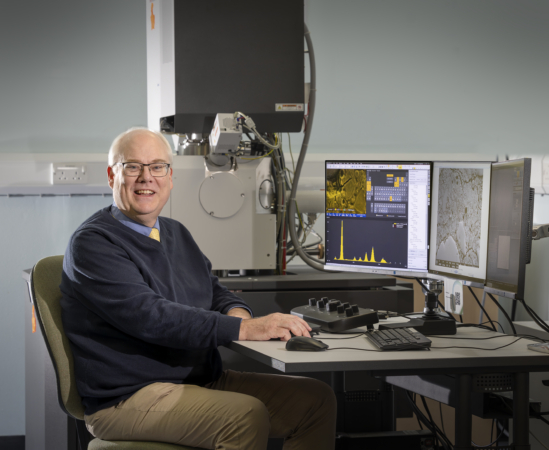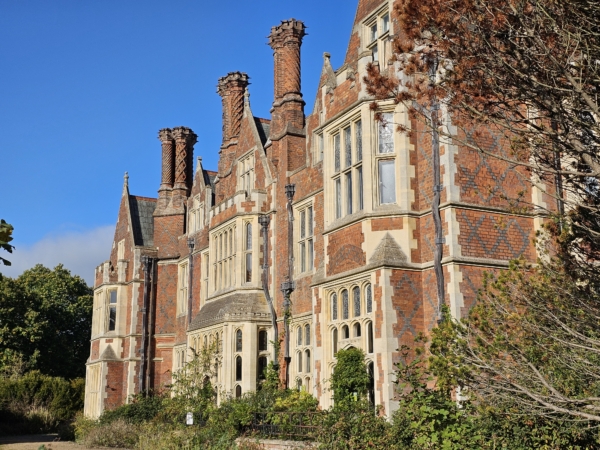AWE recognised at MoD’s Sanctuary Awards
The awards, which celebrate their 33rd anniversary this year, showcase military and civilian efforts across Defence, both in the United Kingdom and abroad, to protect the environment and drive sustainability and conservation.
AWE secured second place in the Sustainable Construction and Procurement Award for how the demolition of the redundant Liquid Waste Treatment Plant was undertaken. This was the largest building on site when it was built in the ‘80s, and is just one of over 150 buildings we’re demolishing as we make way for the new.
The award recognised the work our teams have put in to reduce the impact of the demolition, including efforts to crush concrete waste on-site and reuse it where possible.
This reduced carbon emissions by saving nearly 2,500 vehicle movements, as well as generating savings of £484,000 by using crushed concrete as infill material.
Overall, 99.98% of waste from the demolition was reused or recycled with only 0.02% going to landfill.
Local suppliers have been used wherever possible, which also reduced the length of journeys to the site, minimising expenditure and carbon emissions.
Wastewater from dust suppression during the demolition was treated on site and went through the site drainage system, resulting in a saving of £75,000, with rainwater harvesting saving a further £10,000.
Other successes on site in terms of sustainability, include:
- On-site re-use of waste concrete reduced both the volume of material sent off site and imported to site
- Reduced vehicle movements resulted in a smaller carbon footprint
- Waste-water treatment and rainwater harvesting
- Hydrotreated vegetable oil (HVO) used instead of regular diesel reducing carbon emissions.
Additionally ecological surveys confirmed that peregrine falcons had nested on the structure during the previously. To mitigate for the loss of nesting habitat, three artificial boxes were installed on several structures on the AWE estate. The following year, a pair of peregrine falcons have used one of these to raise a pair of chicks, which fledged at the end of June 2023. Not only has this helped protect a species with a high level of legal protection, their presence piqued the interest of our team here across site who have been watching their progress with interest.
We also had some significant challenges – not least working within the constraints of being on one of the most secure sites in the UK, throughout the work we needed to ensure operations would continue uninterrupted and safely
Principal Environmental Manager for the Defence Infrastructure Organisation Richard Brooks said, “DIO is committed to being as sustainable and environmentally forward-thinking as possible, supporting efforts to protect and enhance habitats across our diverse estate, reduce emissions and drive down our carbon footprint.
“The Sanctuary Awards and Sanctuary Magazine recognise the incredible work being undertaken by MOD personnel, Defence industry suppliers and partnerships with external environmental organisations in stewardship, climate change and sustainability.
“Well done to all of the winners and thank you for your contribution to making Defence greener.”



